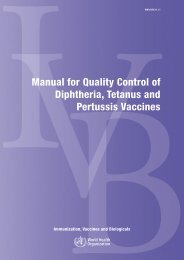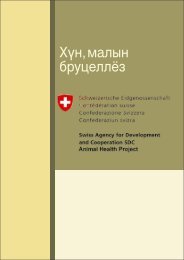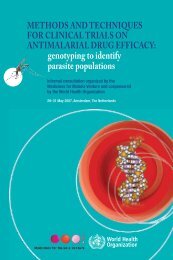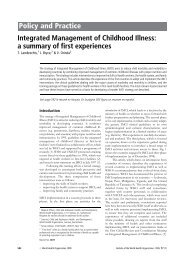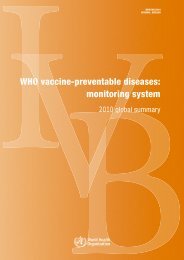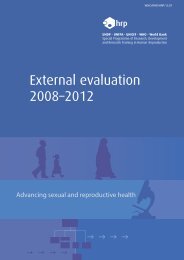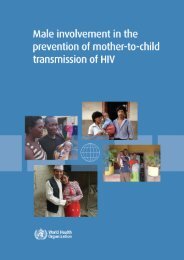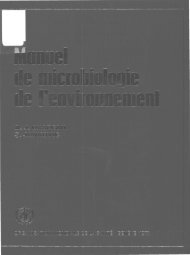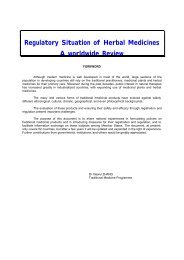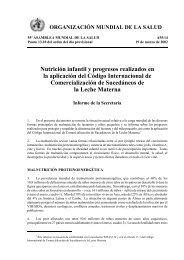IPDE - Extranet Systems - World Health Organization
IPDE - Extranet Systems - World Health Organization
IPDE - Extranet Systems - World Health Organization
Create successful ePaper yourself
Turn your PDF publications into a flip-book with our unique Google optimized e-Paper software.
122 Manual<br />
Scoring conventions<br />
Much of the behaviour described in the ICD-10 personality disorder criteria<br />
exists on a continuum with normality. The <strong>IPDE</strong> scoring is based on<br />
the convention that a behaviour or trait may be absent or normal (0).<br />
exaggerated or accentuated (l), and criterion level or pathological (2). A<br />
few items are not applicable to some subjects, and they are scored 'NA'.<br />
The '? scoring category is reserved for occasions when subjects, despite<br />
encouragement, refuse to answer a question or state that they are unable<br />
to do so. It is not used to designate uncertainty on the part of the examiner<br />
about rating the item.<br />
If the behaviour or trait has not been present for a timespan of at least five<br />
years it does not receive a positive score, even though it meets all the<br />
requirements concerning frequency, intensity, subjective distress, and<br />
social or occupational impairment. A positive score (except 'past') is also<br />
not given when the behaviour has not occurred at all during the past year<br />
(12 months). The only exceptions to the past year (12 months) rule are<br />
those behaviours that occur relatively infrequently. yet have considerable<br />
clinical significance. Those items (10, 15,26,34.55,59,60,61) are designated<br />
by an asterisk next to the item number on the interview schedule.<br />
However. they too must have occurred at least once during the past five<br />
years to receive a positive scm. Otherwise, like other items that meet all<br />
the requirements except past year (l2 months), they should be scored 'past'.<br />
Age at onset<br />
The <strong>IPDE</strong> requires that behaviour indicative of at least one criterion of a<br />
personality disorder be present prior to age 25, before that particulardisorder<br />
can be diagnosed. The remaining criteria for the disorder may<br />
become evident after age 25, pmvided the requirement of five years<br />
duration is met. This rule exists for each individual disorder. However,<br />
when a subject meets all the requirements for a diagnosis except that<br />
regarding onset by age 25, an optional diagnosis may be recorded with<br />
the designation, 'late onset'.<br />
Timefmrne and ageat onsetprobes<br />
The examiner must use a predetermined set of probes to determine




